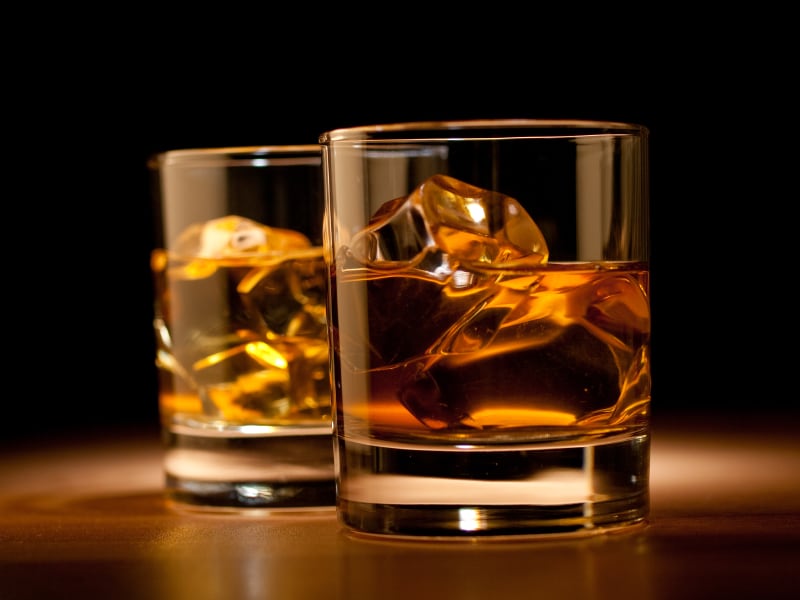Theresa May delivered her highly-anticipated Brexit speech on Tuesday (Jan 17), setting out a 12-point Brexit plan and stating that the UK will have to leave the single market.
UK wine & spirit industry
Worth £45bn ($55bn) in economic activity to UK economy; and £21bn ($25.8bn) in sales
Supports 600,000 direct & indirect jobs.
99% of wine drunk in the UK is imported. France is the largest wine trading partner by value; Australia is the largest trading partner by volume.
The UK is the world’s largest exporter of spirits. In 2015, 1.25bn liters were exported: including 1.2bn bottles of whisky, 204m bottles of gin, and 54m bottles of vodka. It is the 4th largest importer of spirits by value.

In response, the WSTA has welcomed the aim to achieve tariff-free access to the single market. It also wants to see the government achieve the best possible platform for bilateral trade deals with priority countries for wine and spirits, while highlighting the value of the industry preparing the ground in advance.
The UK trades wine and spirits with 139 countries, and the WSTA represents more than 300 companies that deal with wines and spirits in the UK.
‘Act fast, minimize disruption’
The WSTA’s key priorities for Brexit are to support an exit from the EU that minimizes disruption to current trade; and to fully exploit the new opportunities Brexit presents.
In the UK, 99% of wine drunk is imported. Meanwhile, the UK is the world’s largest exporter of spirits, making up more than 25% of global exports, with Scotch whisky and gin being particularly important.
The WSTA has called on the government to ensure there is tariff and quota free access for EU produced wine and sparkling wine imported into the UK immediately after it leaves the EU.
Similarly, it wants to ensure there is tariff and quota free access to the EU market for UK produced spirits, spirit drinks and English wine.
Priority markets for wine imports are Argentina, Australia, Canada, Chile, the EU, New Zealand, South Africa and the US.
Priority markets for gin and English wine exports are Australia, Canada, China (including Hong Kong), the EU, Japan, Singapore, South Africa and the US.
“The challenge lies in persuading all governments involved in trade deal negotiations - especially our own - to minimize disruption to existing trade and create opportunities for new trade in our products,” Miles Beale, chief executive of the WSTA, told BeverageDaily.
'The WSTA can prepare the ground, remove the politics, propose a single approach for both sides to sign up to' - Miles Beale
“We want them to act fast, agree an EU deal and then new deals that we, as the wine and spirit industry, prepare and put in front of them.
"That's where the WSTA can help too - preparing the ground, removing the politics, proposing a single approach for both sides to sign up to.”
How can individual companies understand what Brexit means for them?
Brexit brings with it many uncertainties, creating a number of unknowns for wine and spirits companies. Beale says that getting involved and linking with collective expertise and skills is the way to best prepare for all eventualities.
His message to wine and spirits companies is: “Don't worry, but do prepare and do get involved. The best way to do so is to join the WSTA. We can't give you all the answers, but we can help UK businesses to prepare - even for the unexpected.”
The WSTA has been preparing for Brexit and will continue to do so, said Beale.

“We are already doing a lot... Perhaps most importantly we are making ourselves available to - and soon we hope indispensable to - the UK government,” he said.
“Moreover, I think the WSTA is uniquely qualified. The UK is the biggest importer of wine in the world and the biggest exporter of spirits. Institutionally we are unique in that we act for both wine and spirits.
“Only the WSTA can therefore advise on this 'package' of products where agreement will be easier to find than in many, many other sectors.
"And we are already in touch with our opposite numbers in many of our target markets so that the UK government's opposite numbers are receiving the right advice too.”
Brexit priorities
In addition to tariff and quota free access, the WSTA has identified other priorities for the wine and spirits industry in Brexit in its policy paper.
It is calling on the government to establish a UK system for existing protected designations of origin for wines and spirits, and to take the opportunity to revise current protection of English wine and sparkling wine. Given the renaissance of gin in the UK and its increasing importance as an export good, it also wants to see a new protection introduced for the spirit.
The WSTA sees the World Wine Trade Group (WWTG) as a successful trade facilitation group and says the UK should join this immediately on its exit of the EU.
The current EU regulatory framework for food law has shown itself to be ‘fit for purpose’, and the WSTA would like to see the main elements of this rolled over into UK legislation.
In the same way, EU definitions for most spirit drinks and production rules for wine should be kept consistent to maintain consumer confidence.
